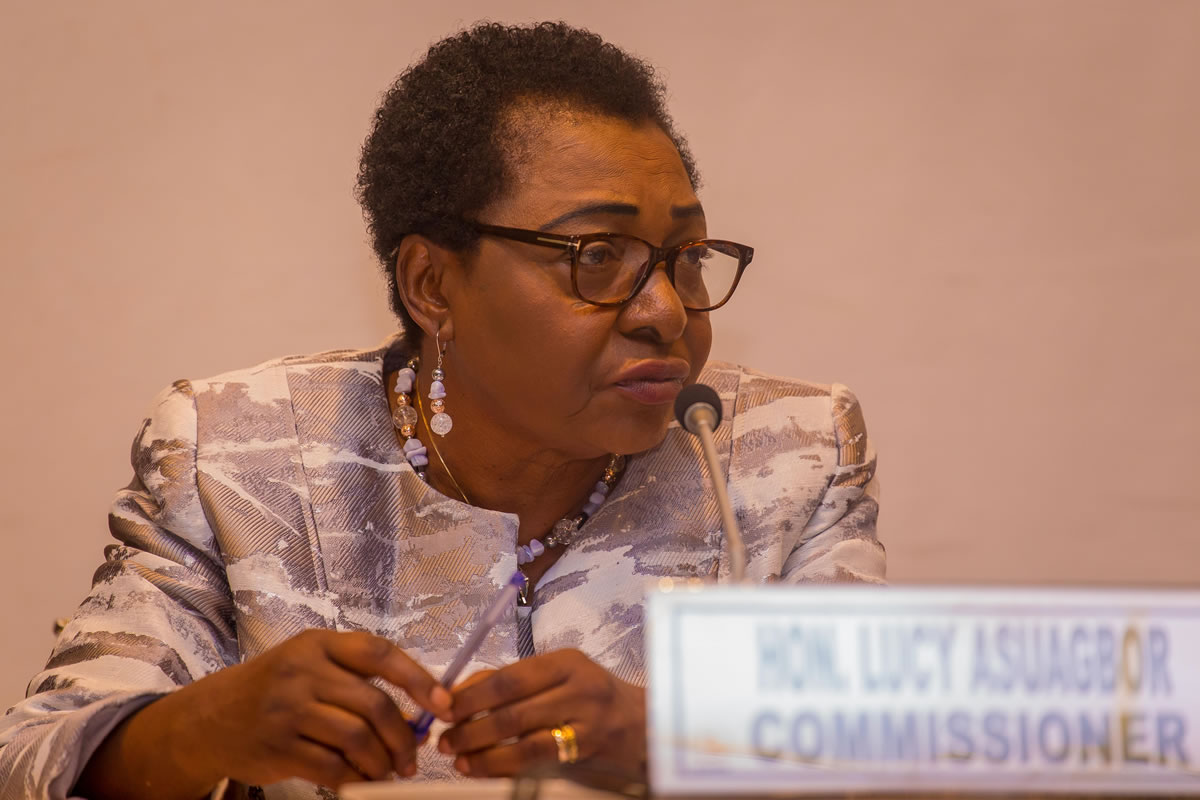As part of the Africa Beijing+25 review, and in preparation of the commemoration of the Beijing Declaration in 2020, the African Commission on Human and Peoples’ Rights (African Commission), through the Special Rapporteur on the Rights of Women in Africa, hosted a panel during the 65th Ordinary Session of the Commission on 22 October 2019 in Banjul. The panel focused on the rights of women in Africa and was an opportunity to reflect on the strides made on the continent over the years since the adoption of the Beijing Declaration in 1995.
The panel was chaired by Commissioner Soyata Maiga. The panellists were Commissioner Lucy Asuagbor (Special Rapporteur on the Rights of Women in Africa) Patience Mungwari Mpani (Manager, Women's Rights Unit, Centre for Human Rights, University of Pretoria), Mr Robert Kasenene (Advocacy & Coordination Specialist, Department of Social Affairs, African Union Commission), Mr Erick Mundia (Progamme Officer, IPAS Alliance) and Ms Mary Kimemia (Programme Officer, Kenya Human Rights Commission).
The panellists traced developments in the realisation of the rights of women in Africa and highlighted the challenges faced in the promotion and protection of women’s rights. For instance, despite development of human rights norms, achievements and initiatives on ending these harmful practices, child marriage and female genital mutilation (FGM) continue to persist. Millions of girls and women are still at risk of being subjected to such practices. Whilst criminalisation of FGM can be effective, governments have to put programmes, structures and resources in place to intensify sensitisation against the practice. In various African countries, there are also inadequate frameworks that criminalise violence against women. In relation to the area of sexual and reproductive rights, challenges include lack of education on sexuality, contraception, access to safe abortions, HIV exposure and transmission.
In light of these challenges, the panelists reiterated the call to respect, promote, protect and fulfill women’s rights, with a view to accelerate the implementation and adoption of legislation, policies and other measures geared towards gender equality and women empowerment.
On reactions from delegates, the state delegate from Rwanda shared that on 11 October 2019, the Rwandan President Paul Kagame signed a decree pardoning 52 young women in prison for abortions, including some convicted for infanticide, on the eve of the International Day of the Girl Child.
As the Beijing Declaration is currently undergoing review, it is critical to implement international and regional human rights standards and frameworks, including the Maputo Protocol, which requires commitment by governments to achieve gender equality, as well as strategic efforts by civil society organisations (CSOs) to hold states accountable to their obligations.
The Centre’s Women’s Rights Unit was also involved in the hosting of an Expert Meeting, in partnership with ICJ-Kenya and Equality Now, on the needs of shadow reporting guidelines on the African Charter on Human and Peoples’ Rights (African Charter) and the Maputo Protocol. A panel on the same theme also took place on 19 October 2019 during the NGO Forum and the 39th African Human Rights Book Fair.
The state party reporting process is a fundamental mechanism for the monitoring of the implementation of treaties at national level. It provides an opportunity for the treaty body to engage with the state party on the legislative and administrative measures that they have taken to give effect to the treaty, as well as reflect on some of the challenges to implementation. An essential component of the state reporting process is shadow reports, which is useful in providing additional and alternative information that supports the African Commission to gain a more holistic understanding of the human rights situation of a state.
Given that there are no standardised shadow reporting guidelines, this has resulted in continuous calls by both CSOs and the African Commission for the standardisation of shadow reports to produce reports that are more useful to the African Commission.
For more information, please contact:
